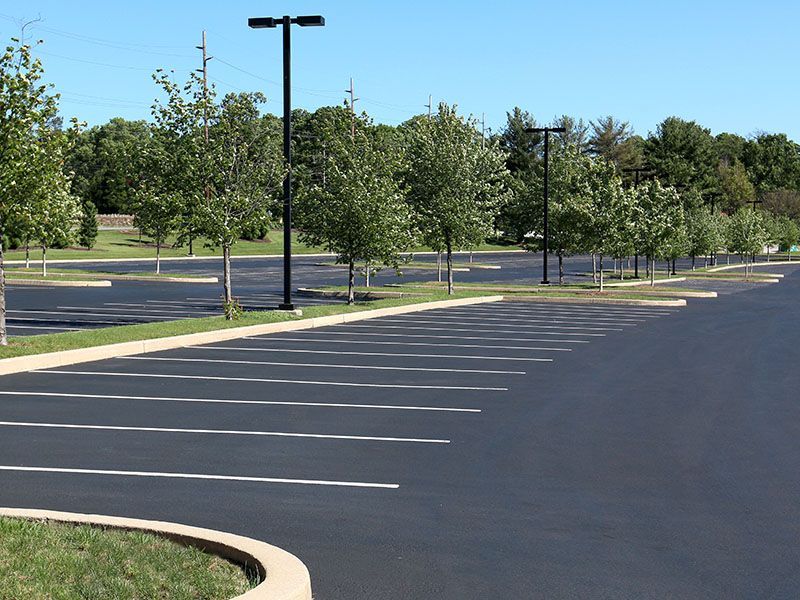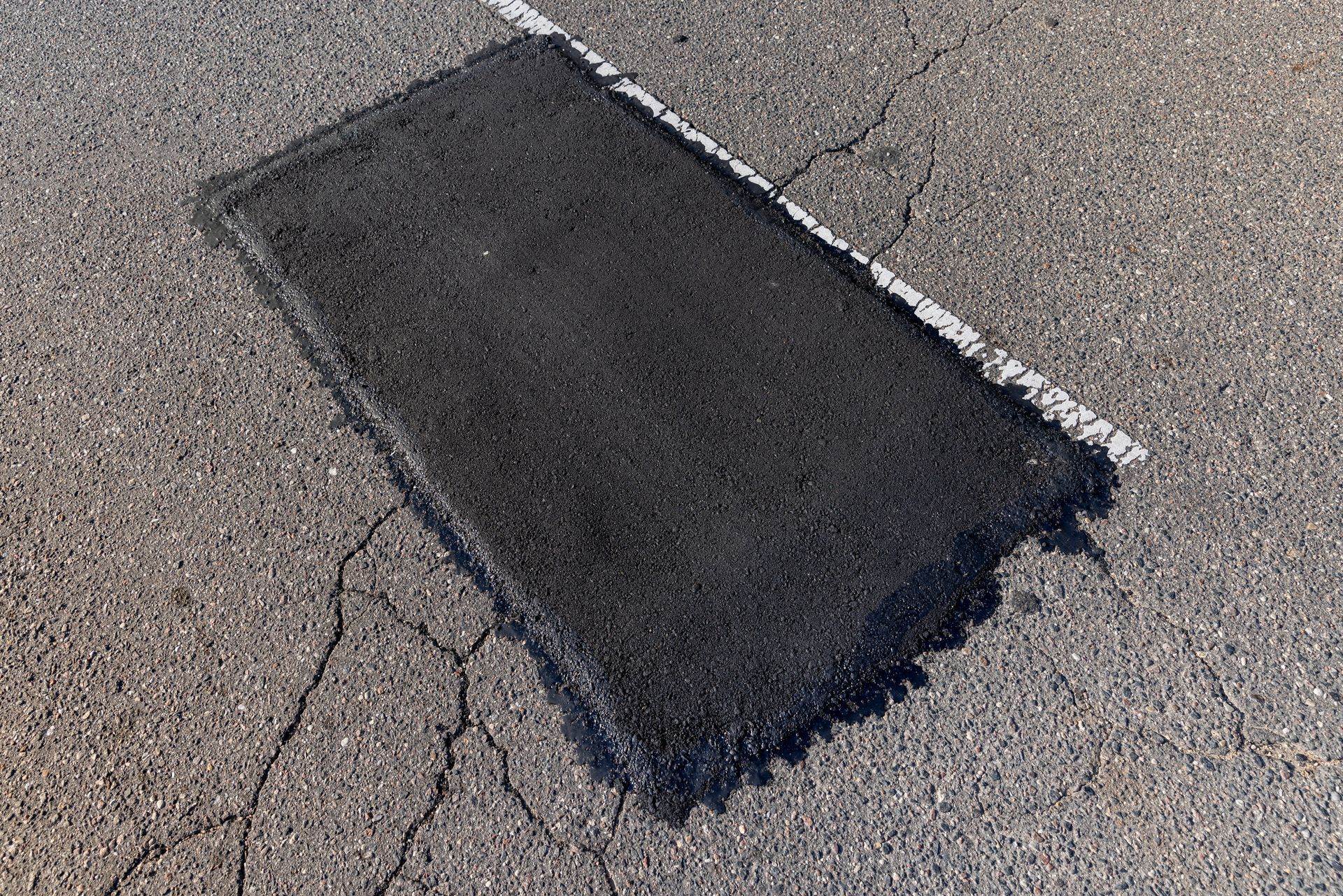Foundations For Success: Understanding Grading In Construction
Exploring grading in construction
Understanding grading in construction is crucial for any commercial property manager aiming to ensure the longevity and safety of their investments.
defining grading
Grading in construction refers to the process of leveling or shaping the ground to prepare it for commercial paving and other building projects. This essential step ensures that a site is ready for development, with a focus on creating stable, even surfaces.
For commercial property managers, understanding how grading impacts project success is vital. A well-graded site leads to improved water runoff management, preventing future issues with flooding or erosion which could compromise the stability of asphalt installations.
significance of grading prior to paving
Grading before laying asphalt is a crucial step in any construction project. Proper grading ensures that the ground is even and slopes correctly, which helps with water drainage and prevents pooling that can damage the asphalt over time. It also provides a stable foundation, reducing the risk of cracks and other structural issues.
Without proper grading, the lifespan of the asphalt is significantly reduced, leading to frequent maintenance and higher costs. Ensuring the ground is well-prepared before the asphalt is laid not only enhances durability but also promotes safety and efficiency in the long term.
Role in drainage enhancement
Grading plays a vital role in ensuring proper drainage before asphalt application. When the ground is accurately graded, it directs water away from the surface, preventing accumulation that can cause damage.
Poor drainage can lead to standing water, which seeps into the asphalt, causing cracks, potholes, and weakening the base layer. Over time, this can significantly reduce the lifespan of the asphalt and lead to costly repairs. Proper grading creates a slight slope that channels water to designated drainage areas, maintaining the integrity and strength of the asphalt.
By prioritizing grading, you protect your investment, ensuring the surface remains functional and safe under various weather conditions.
differentiating types of construction grading

Understanding construction grading is key to a successful project. It involves different methods, each suited for specific needs and outcomes. Landscape grading shapes the land for visual appeal and functionality, while architectural grading prepares the site for building structures.
Regrading may be necessary to correct existing issues, enhancing drainage and stability. Rough grading creates the basic shape of the land, setting up initial slopes and levels; finish grading then refines these surfaces for final touches before construction begins.
landscape versus architectural grading
Landscape grading and architectural grading are both crucial to asphalt application, but they serve different purposes and involve distinct processes.
Landscape grading focuses on preparing the ground for aesthetic and functional landscape design. It involves shaping the land to create a smooth, visually appealing surface that supports plants, lawns, and other landscape features. In relation to asphalt application, landscape grading ensures that the surrounding areas are properly contoured to direct water away from the asphalt surfaces, preventing erosion and water damage.
This type of grading helps integrate the asphalt seamlessly into the overall landscape design, contributing to both the functionality and beauty of the property.
Architectural grading, on the other hand, is more technical and precise. It involves the detailed shaping of the ground to meet specific engineering and architectural requirements.
This type of grading is essential for creating a stable and durable foundation for structures and paved surfaces. For asphalt application, architectural grading ensures that the ground is properly compacted and leveled to support heavy loads and withstand various environmental conditions. It also includes the creation of precise slopes and drainage systems to manage water flow effectively.
By combining both landscape and architectural grading, you achieve a well-balanced approach that enhances both the appearance and functionality of your property.
analyzing regrading
Regrading involves changing the slope of an area in construction projects. This process can solve drainage problems, prepare land for new structures, or enhance existing landscapes.
Property managers often consider regrading when water pools near buildings, risking damage to foundations. Experts like those from Asphalt Solutions use their skill in regrading to direct water away from structures efficiently, ensuring long-term safety and stability.
Choosing a professional team for regrading is crucial as they bring knowledge in high-quality work and customer satisfaction to the table. With their commitment to using quality materials and skilled workmanship, property managers can trust that their investment will address current issues and prevent future ones.
steps in the construction grading process
In the process of grading for construction, specialists formulate a comprehensive strategy to confirm that the landscape matches the project's requirements. They regard expenses and use techniques for a more streamlined result, while accurately deciphering plans and efficiently progressing through approval procedures.
developing a grading plan
Developing a grading plan is a crucial step in asphalt application for commercial properties. A well-designed grading plan outlines the precise contours and elevations needed to ensure proper drainage and a stable foundation.
This plan takes into account the specific needs of the property, such as traffic patterns, load requirements, and environmental factors. By creating a detailed grading plan, you can prevent common issues like pooling water and uneven surfaces, which can lead to costly repairs and safety hazards.
Collaborating with experienced professionals at Asphalt Solutions to develop a grading plan will enhance the durability and performance of your asphalt surfaces, protecting your investment and ensuring the long-term functionality of your commercial property.
reading and interpreting grading
Reading and interpreting a grading plan is essential for commercial property managers overseeing asphalt applications. A grading plan provides detailed diagrams and specifications showing the desired slopes, elevations, and contours of the site.
Understanding these elements ensures that the asphalt will be laid on a properly prepared surface, promoting effective drainage and stability. Key aspects to focus on include slope percentages, drainage pathways, and the locations of any high or low points. By accurately interpreting the grading plan, property managers can ensure that the construction team follows the design correctly, preventing issues like water pooling and surface irregularities.
approval process for grading projects
The approval process for grading projects related to asphalt application involves several key steps that commercial property managers must navigate.
Initially, a detailed grading plan must be developed, often by civil engineers, outlining the proposed contours, slopes, and drainage solutions. This plan is then submitted to local regulatory authorities for review, ensuring it complies with zoning laws, environmental regulations, and building codes. The approval process may also require soil testing and environmental impact assessments.
Once the plan is approved, property managers must coordinate with contractors to ensure adherence to the approved specifications. Properly managing this process is essential to prevent delays, avoid non-compliance issues, and ensure the asphalt installation is done on a solid, well-prepared foundation.
contact asphalt solutions today!
Proper grading is essential for ensuring the longevity and performance of your asphalt surfaces. It prevents common issues like pooling water and uneven surfaces, which can lead to costly repairs down the line. By prioritizing grading in your construction projects, you're investing in the safety and durability of your property.
For expert assistance and reliable solutions, contact Asphalt Solutions today. Our team is ready to help you achieve the best results for your commercial property. Reach out now to learn more about our services and how we can support your next project.











Share On: